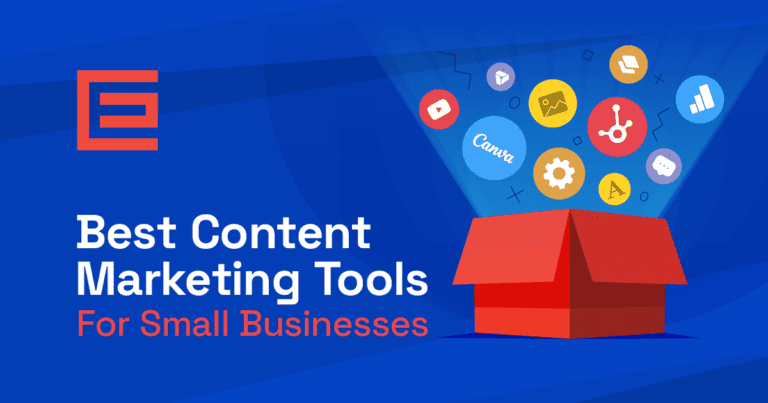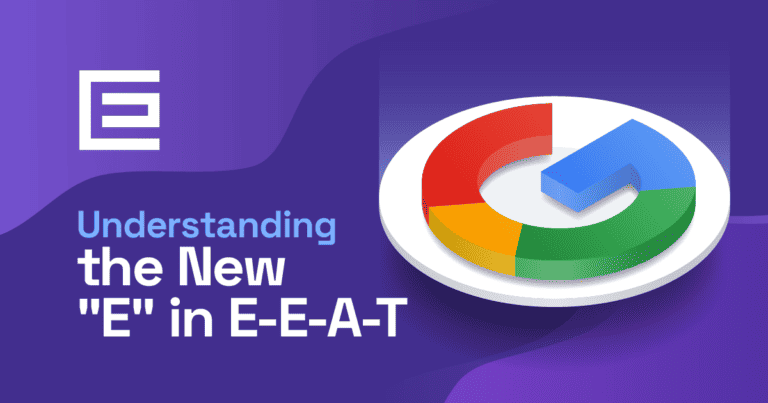In today’s digital age, social media has become an integral part of our lives. It has revolutionized the way we communicate, connect, and consume information. With the rise of social media platforms, digital marketing has also gained tremendous importance. This article explores the dynamic relationship between social media and digital marketing, highlighting the role of social media as a powerful tool for businesses to reach and engage their target audience.
Overview of Social Media
Social media refers to online platforms that enable users to create, share, and interact with content. It encompasses a wide range of platforms, including social networking sites like Facebook, Twitter, and LinkedIn, visual platforms like Instagram and Pinterest, video-sharing platforms like YouTube, and messaging apps like WhatsApp and Messenger. These platforms have witnessed exponential growth in popularity, with billions of active users worldwide. Social media has become deeply ingrained in people’s lives, serving as a primary means of communication, information dissemination, and entertainment.
Understanding Digital Marketing
Digital marketing encompasses all marketing efforts that utilize digital channels to reach and engage the target audience. It involves various online strategies such as search engine optimization (SEO), search engine marketing (SEM), email marketing, content marketing, and social media marketing. In today’s business landscape, digital marketing is vital for companies to stay competitive and expand their reach. It allows businesses to connect with their target audience in a cost-effective and measurable manner, driving brand awareness, customer acquisition, and revenue growth.
Social Media as a Digital Marketing Tool
Social media platforms offer immense potential for businesses to leverage digital marketing strategies effectively. Here are some key ways social media can be used as a powerful marketing tool:
Reach and Audience Targeting: Social media platforms provide extensive reach, allowing businesses to target specific demographics, interests, and behaviors. Advanced targeting options enable precise audience segmentation, ensuring that marketing efforts reach the most relevant users.
Building Brand Awareness and Reputation: Social media offers an ideal platform to create and strengthen brand awareness. By consistently sharing engaging content and fostering interactions, businesses can enhance their brand reputation and establish a loyal following.
Increasing Website Traffic: Social media serves as a gateway to drive traffic to business websites. By strategically placing links to valuable content, businesses can entice users to visit their websites, increasing the likelihood of conversions and sales.
Generating Leads and Conversions: Social media platforms enable businesses to capture leads and convert them into customers. By leveraging lead generation forms, call-to-action buttons, and optimized landing pages, businesses can guide users through the sales funnel.
Enhancing Customer Engagement and Loyalty: Social media facilitates direct and real-time interactions with customers, fostering engagement and building lasting relationships. Through prompt responses, personalized messaging, and community building, businesses can cultivate customer loyalty and advocacy.
Social Media Advertising
Social media advertising provides businesses with powerful tools to reach a highly targeted audience and achieve specific marketing objectives. Some notable aspects of social media advertising include:
Advertising Options: Platforms like Facebook, Instagram, Twitter, LinkedIn, and YouTube offer comprehensive advertising solutions, including display ads, sponsored content, video ads, and influencer partnerships.
Targeting Capabilities and Audience Segmentation: Social media platforms provide advanced targeting options based on demographics, interests, behaviors, and even specific user interactions. This precise targeting allows businesses to deliver personalized and relevant ads to their intended audience.
Benefits of Social Media Advertising: Social media advertising offers several advantages, such as cost-effectiveness, real-time performance tracking, A/B testing capabilities, and the ability to scale campaigns based on desired outcomes.
Examples of Successful Social Media Ad Campaigns: Numerous brands have achieved remarkable success through innovative and impactful social media ad campaigns. From engaging storytelling to viral challenges, these campaigns have captivated audiences and driven substantial business results.
Back in 2013 amid all the million-dollar commercials that ran during the Super Bowl, Oreo pulled off a marketing triumph by capitalizing on the game’s blackout on Twitter.
Social Media Content Strategy
Effective content strategy is crucial for social media marketing success. Consider the following key points when developing a content strategy:
Importance of Content in Social Media Marketing: Compelling and valuable content is the foundation of successful social media marketing. It captures users’ attention, encourages interactions, and supports brand messaging.
Developing a Content Strategy: Businesses should align their content strategy with their marketing objectives, target audience, and brand identity. The strategy should outline content themes, formats, frequency, and channels for distribution.
Types of Content that Perform Well on Social Media: Visual content like images, videos, and infographics tends to perform exceptionally well on social media. Additionally, user-generated content, influencer collaborations, and interactive content formats like quizzes and polls can boost engagement.
Tips for Creating Engaging and Shareable Content: Businesses should focus on storytelling, authenticity, and relevance when creating social media content. Incorporating humor, emotion, and trending topics can also help capture users’ attention and encourage them to share the content with their networks.
Social Media Analytics and Metrics
Tracking and analyzing social media performance is essential to optimize marketing efforts and measure success. Consider the following aspects of social media analytics:
Tracking and Analyzing Social Media Performance: Social media analytics tools provide valuable insights into key metrics, including reach, engagement, click-through rates, conversions, and audience demographics. Monitoring these metrics helps businesses understand their performance and make data-driven decisions.
Key Metrics to Measure Success: Metrics such as engagement rate, conversion rate, return on ad spend (ROAS), and customer lifetime value (CLV) are important indicators of social media marketing success. They help businesses gauge the effectiveness of their campaigns and optimize their strategies accordingly.
Tools for Social Media Analytics: Several analytics tools, such as Facebook Insights, Twitter Analytics, and Google Analytics, provide in-depth data and reporting capabilities. These tools allow businesses to track their performance, gain actionable insights, and refine their social media strategies.
Integration with Other Digital Marketing Channels
Integrating social media with other digital marketing channels can amplify marketing efforts and enhance overall effectiveness. Consider the following points regarding integration:
Importance of Integrating Social Media with Other Channels: Integrating social media with other channels, such as email marketing, content marketing, and SEO, helps create a cohesive and synchronized marketing ecosystem. It allows businesses to reinforce messaging, reach a wider audience, and maximize the impact of their campaigns.
Examples of Cross-Channel Digital Marketing Campaigns: Successful cross-channel campaigns often involve the strategic use of social media alongside other channels. For instance, combining social media contests with email marketing can boost participation and lead generation.
Maximizing Synergy between Social Media and Other Channels: By aligning messaging, visuals, and calls to action across various channels, businesses can create a seamless user experience. This integration encourages users to engage with the brand consistently and move seamlessly through the marketing funnel.
Social Media Influencers and User-Generated Content
Influencers and user-generated content offer unique opportunities for businesses to amplify their reach and engage with their target audience. Consider the following aspects:
The Role of Influencers in Digital Marketing: Influencers have significant influence over their followers and can help businesses reach a wider audience. Collaborating with influencers allows businesses to leverage their credibility, expertise, and social reach to promote products or services effectively.
Leveraging User-Generated Content for Marketing Purposes: User-generated content (UGC), such as customer reviews, testimonials, and social media mentions, provides authentic and relatable content that resonates with potential customers. Businesses can encourage UGC by running contests, featuring customer stories, and sharing user-generated content on their social media platforms.
Benefits and Challenges of Working with Influencers: Partnering with influencers can enhance brand visibility, credibility, and reach. However, it’s essential to select influencers whose values align with the brand, negotiate fair compensation, and maintain transparency to ensure authenticity and compliance with advertising regulations.
Social Media and Search Engine Optimization
Social media and search engine optimization (SEO) have a symbiotic relationship, with social signals impacting search rankings. Consider the following points:
Impact of Social Media on SEO: While social media signals themselves do not directly influence search rankings, they indirectly impact SEO. Social media can help generate backlinks, increase content visibility, and drive traffic to websites, which are all factors that can positively influence search rankings.
Social Signals and Their Influence on Search Rankings: Social signals, such as the number of shares, likes, and comments a piece of content receives, can indicate its popularity and relevance. Search engines consider these social signals as signals of quality and user engagement, which can contribute to higher search rankings.
Best Practices for Integrating Social Media and SEO: Businesses can optimize their social media presence for SEO by using relevant keywords, including links to their website in social media profiles and posts, and ensuring social media content is shareable and engaging. Additionally, integrating social sharing buttons on websites can facilitate content amplification and increase social signals.
Emerging Trends and Future of Social Media in Digital Marketing
Social media marketing is continuously evolving, driven by advancements in technology and changing user behaviors. Consider the following aspects of emerging trends and the future of social media in digital marketing:
Overview of Current Trends in Social Media Marketing: Current trends include the rise of video content, the increasing importance of social commerce, the popularity of ephemeral content (e.g., Stories), and the growing use of augmented reality (AR) and virtual reality (VR) experiences.
Predictions for the Future of Social Media in Digital Marketing: The future of social media in digital marketing is likely to witness further integration of AI and machine learning, enhanced personalization, the convergence of social media and e-commerce, and the development of new platforms and features to cater to evolving user preferences.
Anticipated Challenges and Opportunities: Challenges include managing privacy concerns, dealing with algorithm changes, and staying ahead of evolving platform policies. Opportunities lie in leveraging emerging technologies, harnessing data-driven insights, and cultivating meaningful and authentic connections with the target audience.
FAQs
What is the role of social media in digital marketing?
Social media plays a crucial role in digital marketing by providing a platform for businesses to connect with their target audience, build brand awareness, drive website traffic, generate leads and conversions, enhance customer engagement, and cultivate customer loyalty.
How can businesses use social media for brand promotion?
Businesses can use social media for brand promotion by consistently sharing valuable and engaging content, leveraging social media advertising options, collaborating with influencers, and actively engaging with their audience through comments, messages, and community-building initiatives.
Which social media platforms are most effective for marketing?
The effectiveness of social media platforms for marketing depends on the target audience and the nature of the business. However, popular platforms like Facebook, Instagram, Twitter, LinkedIn, and YouTube are widely used by businesses due to their extensive reach and diverse audience demographics.
How can businesses measure the success of their social media campaigns?
Businesses can measure the success of their social media campaigns by tracking key metrics such as engagement rate, conversion rate, click-through rate, reach, and revenue generated. Social media analytics tools provide valuable insights to monitor performance and make data-driven decisions.
What are some common mistakes to avoid in social media marketing?
Common mistakes in social media marketing include inconsistent posting, excessive self-promotion, neglecting audience engagement, ignoring negative feedback, and lack of a well-defined content strategy. It’s essential to listen to the audience, provide value, and maintain authenticity and transparency.
How does social media impact consumer purchasing decisions?
Social media influences consumer purchasing decisions through user reviews, recommendations, social proof, and engaging content. Users often seek information and validation from their social networks before making purchasing decisions, making social media an important touchpoint for businesses.
Is it necessary to hire a social media marketing agency?
The decision to hire a social media marketing agency depends on the resources, expertise, and goals of the business. While agencies can provide specialized knowledge, strategic guidance, and execution support, some businesses may prefer to manage social media marketing in-house based on their capabilities and budget.
In summary, social media has emerged as a powerful tool in the digital marketing landscape. It offers businesses unique opportunities to connect with their target audience, drive brand awareness, increase website traffic, generate leads and conversions, and foster customer engagement and loyalty. By understanding the dynamics of social media platforms, leveraging effective content strategies, integrating with other marketing channels, and keeping up with emerging trends, businesses can harness the full potential of social media for successful digital marketing campaigns.
Tags: Our Favorites









